- Home
- Gregory Ashe
The Rational Faculty (Hazard and Somerset: A Union of Swords Book 1) Page 2
The Rational Faculty (Hazard and Somerset: A Union of Swords Book 1) Read online
Page 2
Another noise.
“I left it right here on the counter.”
Hazard turned away from the food, slid an arm around Somers’s waist, and kissed him.
“Hi,” Hazard said. “Welcome home. How was your day?”
Somers felt like flipping a coin: fight or no fight.
No fight.
“God, I’ll tell you all about it.”
“That bad?”
“I don’t know.”
Hazard kissed him again.
“Maybe not all bad,” Somers said.
Hazard kissed him again.
When Somers could feel his feet again, he managed to say something that sounded like, “Kind of a good day, actually.”
“Kind of?” Hazard asked with a dark heat in his voice.
“The fish is going to burn,” Somers said, laughing and pushing free. “I’ll be right back.”
As Hazard went back to the stove, Somers stepped out into the garage. He collected the broken plastic jug and carried it outside to the recycling. Then he unspooled a length of hose, turned the water on low, and stepped back into the garage. The beauty of a cement pad and a central drain meant he could just run the hose around the perimeter of the garage, flushing the spilled milk under the Mustang and let it drain away.
He let his thumb play over the end of the hose, enjoying the water’s cool pressure even at the end of October. The sensation was soothing, and Somers needed soothing. His nerves still felt like a total jangle. Work really hadn’t been bad, although it hadn’t been good either. It hadn’t been good since Hazard had resigned. No, the shadow on Somers’s day had started before work. It had started when he had come downstairs, when he had seen the omelet and the glass of juice and the glass of milk and the bacon. When he had seen Hazard standing there, shaggy-haired, bearded, silent. Waiting. Even after they had talked about the breakfasts. Even after they had talked about a fair division of household labor. Even after Somers had made a chore chart. And then, when the chore chart hadn’t worked, another conversation. And then another. And then Somers had come downstairs and seen the omelet. After they had talked about all of it.
I want to do it. That was all Hazard would say about it. No matter how many times Somers tried to explain how he felt. No matter how many times he told Hazard he didn’t want him doing it. Somers had tried phrasing that he’d picked up from websites. When you do blank, I feel blank. He’d tried rationality: if I don’t want x, and it costs you energy to do x, why are you doing x? He’d tried economics: division of labor, specialization. He’d tried every language he knew Hazard spoke. And at the end, under a curtain of dark hair, those scarecrow eyes would stare out blankly and Hazard would say, I want to do it. The way some people said I think I’ll have a Coke. Or It looks like it’s going to be cold today.
I want to do it.
And Somers couldn’t argue with that, not really. He could try to talk his way around it. But couldn’t argue. And what was the problem, really? He loved Hazard. Hazard loved him. Hazard wanted to do something nice for him. Hazard wanted to make him breakfast. It was a kindness, really. A demonstration of what he felt for Somers. Somers knew he should feel grateful. Knew he should feel lucky to have a man who cared about him like that. And he did feel those things. Lucky, grateful, blessed, fortunate. Choose your adjective.
Happy?
Somers batted the word aside. What made the whole situation impossible was that Somers couldn’t even explain what was wrong. It was just a feeling. It was the look in Hazard’s eyes when he didn’t know Somers was watching him. It was coming down the stairs, seeing the omelet, seeing Hazard waiting, mute and patient like a servant, and all Somers could think about was that one afternoon, that horrible fucking afternoon he had come home early from work.
Somers played the hose from side to side, pressing down on the tip, forcing the water out in a hard spray. He had come home early from work. It hadn’t been like he was trying to sneak up on Hazard. It hadn’t been like he was . . . spying. He had ducked out a couple of hours early, knowing that Hazard would be home, thinking they could mess around and order Thai food and maybe mess around again after dinner. It was just supposed to be fun. It was just supposed to be cute and maybe a little romantic.
Only when Somers had come home, the house had been dark. It was early afternoon. It was a bright October day, and the light came through the windows like surf off the ocean. So it was silly to say the house was dark. Only it was dark. All the lights off. Every single light. Off. And for some reason, Somers had slipped off his shoes at the door. He had been careful, removing his keys from the lock, sliding them into his pocket so they couldn’t jingle. He had found himself walking on the boards he knew didn’t creak. He had felt dizzy, his heartbeat in his ears. He had known, even then.
When he reached the living room, he stopped. Because it was so quiet. That was what seemed impossible: how quiet everything was. Hazard lay on the sofa perfectly still except for the rise and fall of his chest. His eyes were open, but he hadn’t seen Somers. He didn’t seem to see anything. And he didn’t fidget. He didn’t shift. The sofa’s leather didn’t squeak. He wasn’t napping, either. That was what Somers remembered most vividly. The open eyes staring into nothing. The shallow breathing.
That had all lasted only an instant. And at the end of that instant, Hazard blinked and sat up, and he was saying something about a nap, and Somers was nodding and saying something about a nap, and it felt like some bizarre dance that neither of them really knew the steps to. But they kept doing the dance, nodding and smiling and talking about how wonderful naps were. And that had been the end of it. Neither of them had ever mentioned it again.
But an instant had been long enough. And in that instant, a dozen other puzzle pieces had fallen into place. The clearest, the most vivid, had been the realization that Hazard almost never left the house. Until that afternoon, Somers had believed—with no evidence to the contrary—that Hazard left the house to jog or to get coffee, to stop by the library, to have lunch. And now he realized that Hazard never talked about leaving the house. Never talked about going outside unless it was to pick up groceries or drop off the dry cleaning or take the car for an oil change. In that frozen instant, Somers thought about the times Hazard asked Somers to pick up a DVD on his way home from work; all the nights Hazard wanted take-out instead of dinner in a restaurant; the strange resistance, which at the time Somers had chalked up to obstinacy or a foul mood, when Somers proposed a walk through the neighborhood, or a hike in the Ozarks, or a drive to Columbia for a night out.
In the garage, with the spray of water numbing his thumb, Somers suddenly felt something holding him by the throat, clutching at him until he could barely breathe. The last of the milk swirled in the water, disappearing under the Mustang, and Somers staggered outside into the October evening, the sun swollen on the horizon. He shut off the hose and coiled it neatly around the hanger. And then he pressed his hands over his eyes and leaned against the house and breathed until he wasn’t going to fall apart.
When he went back inside, Hazard was at the stove, lifting fish out of the pan on a spatula. The groceries had been put away.
Somers leaned on the quartz slab. He waited until Hazard looked at him, really looked at him, and neither of them could pretend they didn’t know what this was about.
Neither of them said anything.
Hazard slid the fish onto a plate and then served roasted asparagus alongside it.
“Thank you,” Somers said.
Hazard shrugged. “Pretty easy dinner tonight.”
CHAPTER THREE
OCTOBER 30
TUESDAY
7:27 PM
THE HOUSE SOMERS AND HAZARD had bought was in an old Arts and Crafts neighborhood of craftsman-style homes. Located near the city center, it was within walking distance of city hall and Market Street and even the Wahredua police station. It was also within walking distance of their old apartment. Even w
ith the location, though, and even with the valuable historical quality of the construction, the neighborhood was one of the only areas that Hazard and Somers could really afford to consider. This was entirely due to the urban blight that, Hazard believed, had been intentionally inflicted by Wahredua’s former mayor and his real estate development firm.
So, although most of the houses were over a hundred years old, with wide porches and square columns, with low roofs and wide eaves, with dark beams and quality woodwork, many of the homes were falling into ruin—abandoned because empty lots had been allowed to fester, infecting the area with crime and vandalism. Hazard and Somers had bought the house cheap because of the neighborhood. And, if Hazard were honest, because the house needed a great deal of work. Work that Somers had intended to do before his sick leave ran out. Work like the leaking sink in the utility room, which had been put off again that night because of trunk or treat.
Instead of walking to city hall, though, that night they drove. Wahredua’s civil servants had been putting on the trunk or treat for years. Decades, actually. The tradition had started after Hazard had been in high school, and he had been too old to take part in the actual process of collecting candy from cars parked in city lots, but he remembered the pleasure of crisp autumn nights when he could walk Jefferson Street, where city hall and the sheriff’s department and public records and a dozen other city and county offices occupied grassy acres of land. He remembered watching excited children race through parking lots, collecting candy from the trunk of each car. He remembered the slightly muted thrill of seeing teenagers, kids he knew from high school, in their more adult costumes, sexy costumes that showed off thighs or abs or breasts, as they paraded for each other before disappearing into someone’s basement to listen to Pearl Jam and drink Natty Lights. For him, those nights had always ended with silent walks back home. But he remembered. And the memories, especially after all these years, were strangely luminous. Something he had enjoyed more than he had realized at the time.
Now, as Hazard guided the minivan—his new car, a 2012 Honda Odyssey, gray, practically invisible—into a parking space, he felt a flicker of the same energy. He got out of the car and opened the passenger door, where Evie was already trying to rip loose the buckles on her car seat. Somers opened the other door and watched them, a crooked smile on his face.
“Somebody’s excited.”
Hazard slid Evie’s little hands aside and unfastened the buckles. Then, lifting her out, he was treated to an ear-splitting shriek. Mostly excitement, he decoded. But a little bit of hellion too.
When he set her down, she looked up at him and extended an imperious hand. “I want my—” And then a word that Hazard couldn’t understand.
“What?”
“I want my—”
He glanced over the top of her head. Somers was setting up the folding chairs at the back of the minivan, and he smirked at Hazard.
Hazard narrowed his eyes at his boyfriend.
Raising his hands innocently, Somers gestured to the back of the van. Through the glass, Hazard could see what he was pointing at.
“Oh. Your pumpkin.”
“I want my pumpkin.”
“Is that a nice way to ask?”
Evie did her latest performance: eyes wide and fluttering, head rolling to the side, hands clasped at her chest. “Pwease?”
“Careful,” Somers said in a low, amused voice. “Your knees are melting.”
Hazard shot him a glare. Then he picked up Evie, carried her around back, and passed her the bucket.
“You guys look adorable,” Somers said. He got out his phone and took his place at Hazard’s side. “Selfie.”
“No,” Hazard said.
“Smile!”
A moment later, the phone flashed, and Somers lowered it, studying the picture on the screen.
“Cute,” he said, showing it to Hazard.
Hazard just grunted and lowered Evie.
“Candy,” Evie shrieked, darting towards the next parked car, where an older woman was passing out candy bars that Hazard could pop down in a single bite.
Hazard caught her wrist. “Just a second, miss.”
“Candy!”
“You better take her,” Hazard said to Somers. “I don’t know how long I can hold her.”
“You take her.”
“John.”
“Take her.”
“No, not tonight.”
“I want you to, Ree. I want to see you guys out there together.”
“Be real.”
Somers crossed his arms. The smile died in his face. “Excuse me?”
“Um.”
“What does that mean?”
“Nothing. Will you just take her? I’ll sit here and pass out candy.”
“It didn’t mean nothing.”
“Ok.”
“You definitely meant something.”
“Candy,” Evie informed them, drawing out each syllable pathetically.
Somers’s eyebrows were drawn tight. One finger was tapping a bicep. It was going to be a fight, Hazard realized. Maybe a big one. Maybe their first one since everything in July.
Then, over Somers’s shoulder, Hazard saw a young couple with a swarm of children moving towards them. Young faces lit up with enthusiasm, and the swarm rushed forward.
“Noah and Rebeca,” Hazard muttered.
Somers dropped his arms, putting on a smile as he turned, but the tightly-drawn eyebrows didn’t relax.
The children reached Hazard and Somers first, hitting like a nuclear bomb. They ranged in age from twelve to two and a half, just a little younger than Evie. Hazard was fairly sure that there were only six children, but it felt like a pack of twenty or thirty. They were all laughing, teasing, and then two of the boys got a little rougher and they were snapping at each other, and they all wanted Hazard and Somers to see their costumes. Hazard lost count because the kids kept moving and flowing and swirling around them, but he thought all four of the boys were various forms of peace officers. He didn’t have to stretch to guess that this had something to do with their recently having gotten to know John-Henry Somerset, local hero and detective with the Wahredua PD. One of the girls wore a white lab coat with ROCKET SCIENTIST on the lapel, and the youngest was dressed like Gus from Disney’s Cinderella.
By the time Hazard realized what was happening—he had been distracted by the parade of costumes and children tugging on his hands and demanding his attention—the rocket scientist was walking away, holding Evie’s hand on one side and her sister’s on the other.
“I’d better—” Hazard said.
Somers snagged his shirt without looking at him.
“You don’t mind if Raquel takes Evie, do you?” Rebeca’s dark eyes sparkled with amusement, and Hazard guessed she had witnessed Somers catching him by the shirt. “She’s obsessed with her. It would be nice if she were that interested in her own little sister, but I’ll take what I can get.”
Noah stretched past Rebeca to shake hands, first with Hazard, then with Somers. He had a friendly smile as he said, “I told her not to go past this line of cars, so you’ll be able to keep an eye on Evie.”
“It’s fine,” Somers said.
At the same time, Hazard managed to mutter, “Thank you.”
Noah just grinned wider and slid his arm around Rebeca. “We remember what it was like to just have one. Now we could lose a few and not notice.”
Hazard actually found himself smiling at that. It wasn’t the words—the content was pure drivel—but at the delivery.
“Parking lot’s getting full,” Somers said. “Want to move your car over here?” He thumbed at an empty spot next to the Odyssey.
“We’ll just bring our chairs and candy,” Rebeca said. “I don’t think the kids care too much about the trunk part.”
They walked back down the lot, and Hazard watched them go. They made an odd pair: Rebeca short and dark, Noah tall and white
. Rebeca composed and beautiful, Noah . . . kind of goofy. But they were friendly and genuine and, most importantly, smart. And they had moved into the house next door a few days after Hazard and Somers had gotten into their new home. Perhaps their best quality, in Hazard’s book, was that they had no history in Wahredua; Rebeca had come for a professorship in public health at Wroxall College, and Noah wrote for a series of online blogs and websites.
Hazard dropped into one of the folding chairs, opened a bag of candy, and propped it in his lap. Somers sat next to him. The storm that had started earlier was still brewing, and Hazard waited for lightning to strike again. But after a moment, Somers let out a breath and stretched his legs in front of him. He reached over and took Hazard’s hand.
“Are you glad you came now?”
“I didn’t say I wouldn’t come.”
“So, when you tell me you’re not feeling up to it, and you’re tired, and you might call it a night early, I’m supposed to assume you’re excited about going to trunk or treat.”
“I never said I was tired.”
“That was a joke.”
“Kind of.”
“Kind of,” Somers said with a smile. “It’s a nice night, right?”
It was a nice night: cool without being cold, the sky clear, stars visible even through the haze of light pollution. The smell of fallen leaves mixed with the slight prickle of Somers’s cologne.
Hazard grunted.
“And you like Noah and Rebeca.”
Hazard grunted again.
“Come on.”
“They’re fine.”
“You haven’t yelled at them once.”
“They don’t say stupid things.”
“I caught you talking to Robbie about school.”
“He wouldn’t shut up.”
“You were being very encouraging.”
Hazard rolled his hand, trying to get loose from Somers.
Somers held on. “I believe your exact words were, ‘You’ve got a lot of potential. Don’t let that asshole tell you otherwise.’”
“That wasn’t encouragement; I’ve seen his drawings. It was a statement of fact. And you and I both had Mr. Oberhausen for art. He was an asshole twenty years ago, and he’s still an asshole today.”

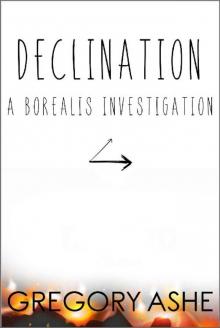 Declination
Declination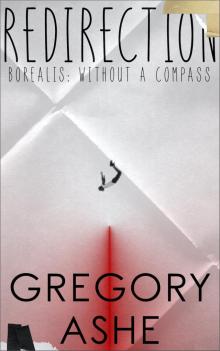 Redirection
Redirection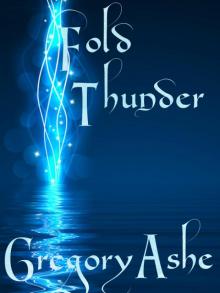 Fold Thunder
Fold Thunder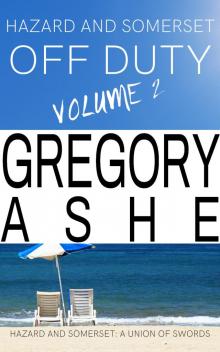 Hazard and Somerset
Hazard and Somerset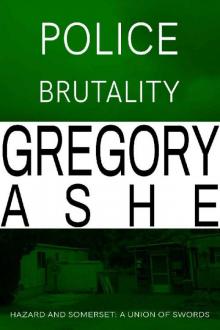 Police Brutality (Hazard and Somerset: A Union of Swords Book 2)
Police Brutality (Hazard and Somerset: A Union of Swords Book 2)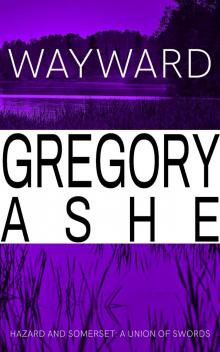 Wayward
Wayward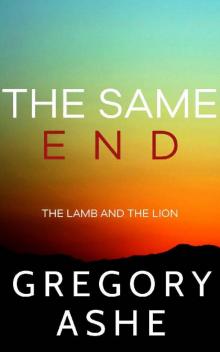 The Same End (The Lamb and the Lion Book 3)
The Same End (The Lamb and the Lion Book 3)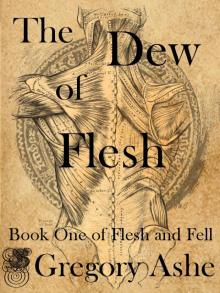 The Dew of Flesh
The Dew of Flesh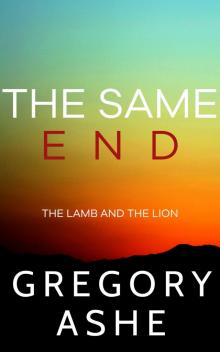 The Same End
The Same End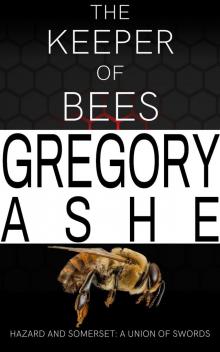 The Keeper of Bees ARC
The Keeper of Bees ARC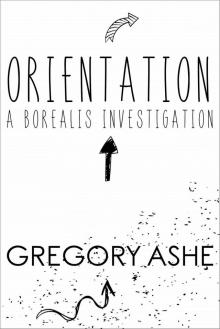 Orientation (Borealis Investigations Book 1)
Orientation (Borealis Investigations Book 1) The Indifferent Children of the Earth
The Indifferent Children of the Earth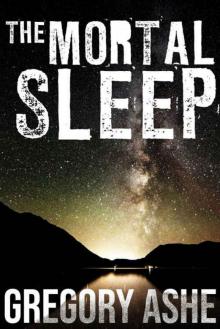 The Mortal Sleep (Hollow Folk Book 4)
The Mortal Sleep (Hollow Folk Book 4)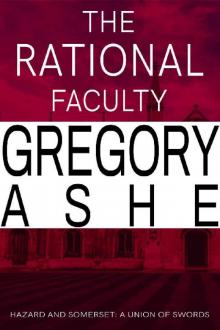 The Rational Faculty (Hazard and Somerset: A Union of Swords Book 1)
The Rational Faculty (Hazard and Somerset: A Union of Swords Book 1)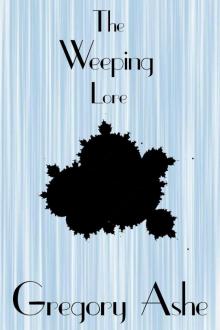 The Weeping Lore (Witte & Co. Investigations Book 1)
The Weeping Lore (Witte & Co. Investigations Book 1)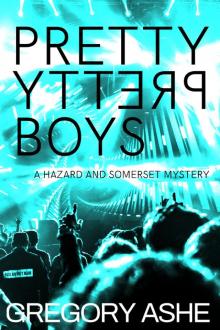 Pretty Pretty Boys
Pretty Pretty Boys Transposition
Transposition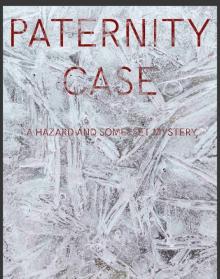 Paternity Case
Paternity Case